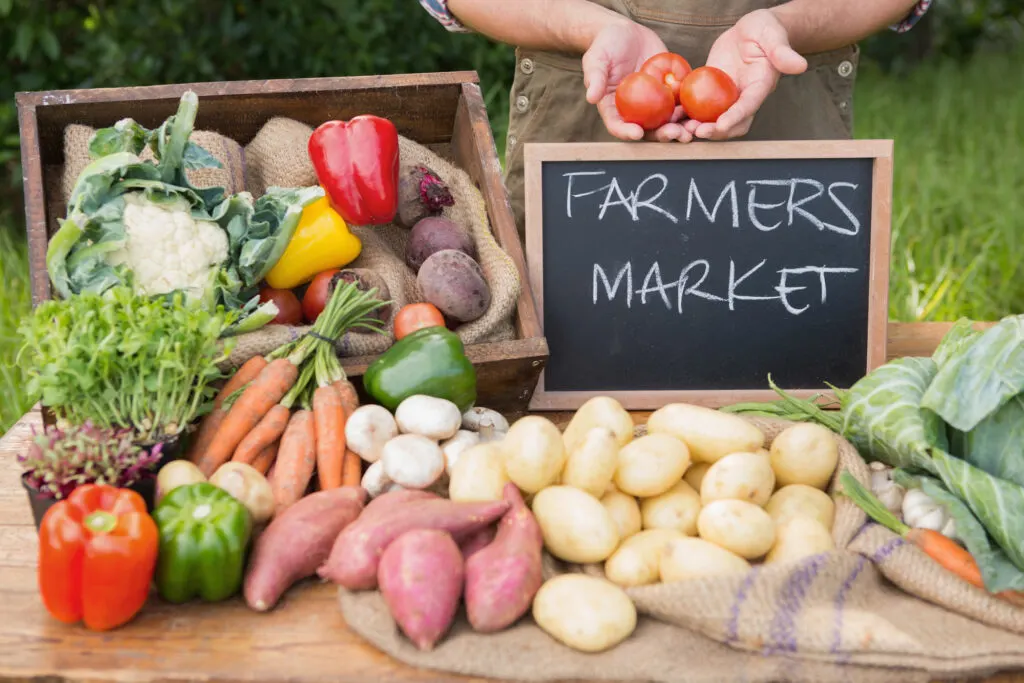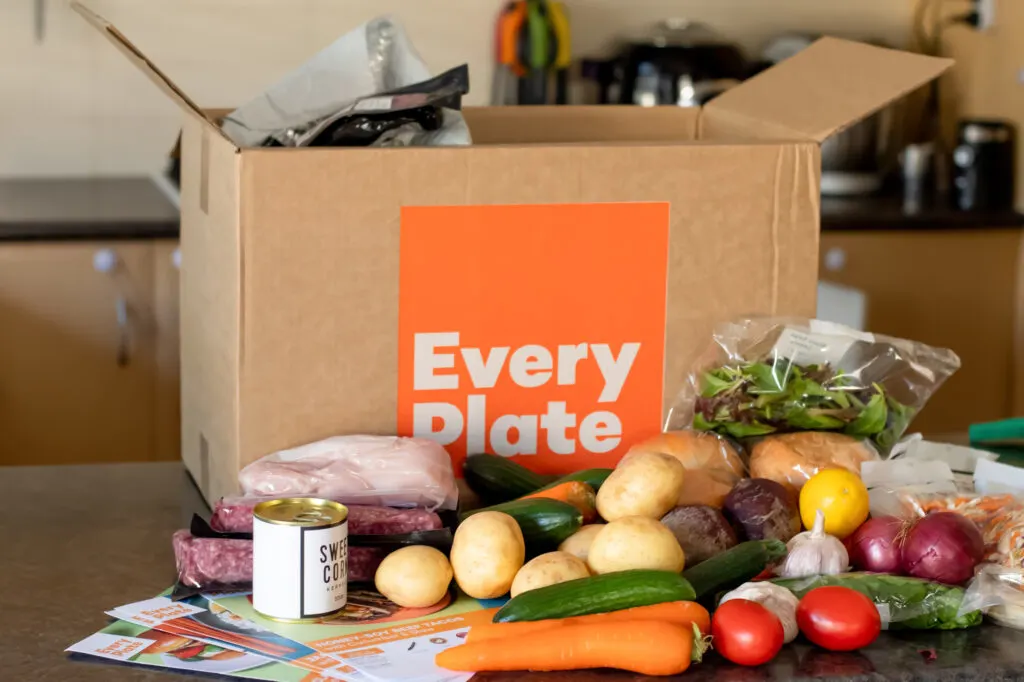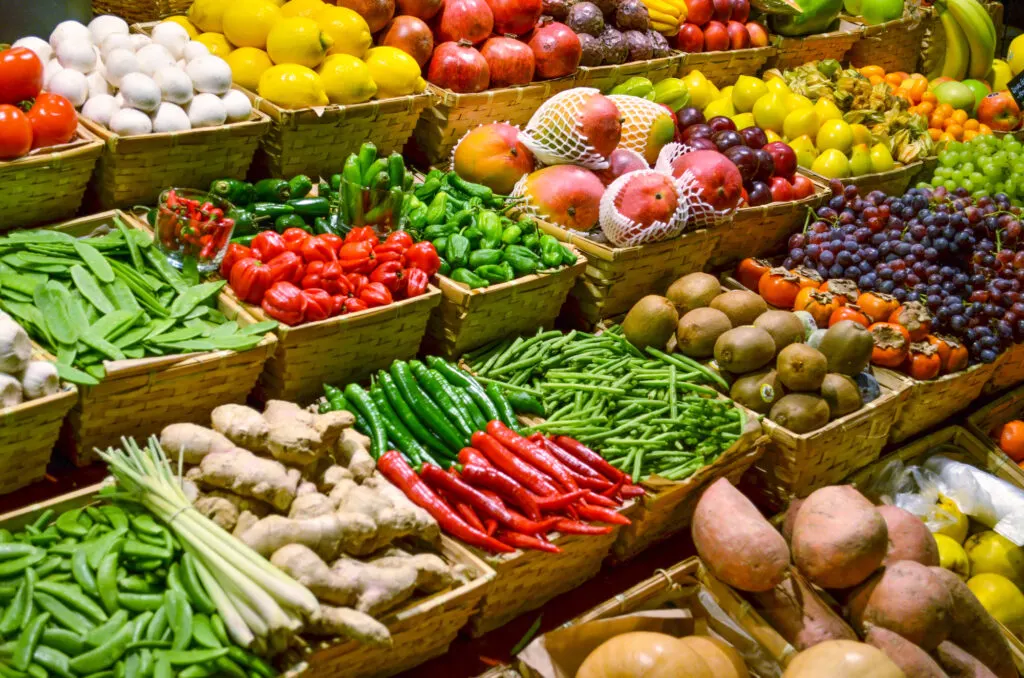With the cost of living on the rise, it’s become more important than ever to save money wherever possible. But did you know that one of the areas where we often spend more than necessary is on our groceries? Yes, that’s right! Those weekly trips to the supermarket can add up and take a significant chunk out of your budget.
Fortunately, there are many ways to trim that grocery bill without sacrificing the quality of your food or your overall health. I’ve gathered 50 Simple Ways to Save Money on Groceries That Anyone Can Do that are easy to implement and have a real impact on your expenses.

You don’t need to be a coupon-clipping expert or a budgeting guru to start saving – just a little know-how and some determination.
From smarter shopping techniques, savvy meal planning, and understanding best times to buy certain products, to leveraging apps and loyalty programs, we’ve covered it all.
Whether you’re a single individual, a student, or part of a bustling family, these strategies can be tailored to fit any lifestyle. So let’s help you save on grocery shopping and help you keep more money in your pocket!

50 Simple Ways to Save Money on Groceries That Anyone Can Do
Create a Grocery Budget: This is one of the easiest ways to monitor your spending.
Plan Your Meals: This can help in avoiding impulse buys. Meal planning is a great way to ensure you buy only what you need based on what you don’t have at home already.
Draft a Shopping List: And stick to it! This small change can save you much money in the long run by preventing unnecessary purchases.
Use Grocery Apps: They can help you find the best deals and discounts at your local grocery store. You can even clip digital coupons.
Use Cash Back Apps: Cash back apps will give you money back for purchasing certain items. My favorites are Ibotta, Rakuten, and TopCashBack.

Shop with a Full Stomach: You’re less likely to make impulse purchases when you’re not shopping on an empty stomach. Trust me on this one – I always buy more when I shop hungry.
Buy in Bulk: Large quantities of household staples like toilet paper or pantry staples can be cheaper at wholesale clubs like Sam’s Club or Costco.
Check Unit Prices: This will ensure you’re getting the best price for each item. It’s a good idea to carry a calculator to make it easier.
Look High and Low on Shelves: Stores often place the most expensive items at eye level. So, look high or look low for better pricing.

Check Expiration Dates: Buying items with a later use-by date can prevent food waste thus help with savings long-term.
Buy Store Brands: They’re often cheaper than name-brand products but offer similar (if not, the same) quality. Don’t be a brand snob!
Take Advantage of Sales: Stock up on sale items, but only if they’re things you would normally use. That way you don’t pay full price the next time you need it.
Use Loyalty Programs: Your phone number or email address usually suffices to start earning points or allows you additional discounts.
Try Different Stores: Discount stores like Trader Joe’s or Aldi often offer lower prices on many items. And don’t sit on stores like Dollar Tree for Groceries.

Shop Seasonally: Fresh fruits and vegetables are cheaper when they’re in season. So, stick to items in season for the most savings.
Order Groceries Online: While you can have groceries delivered, sometimes that costs extra for delivery + tip. However, you can use stores like Amazon to have groceries delivered to your home for free and save by not being tempted at the store.
Consider Grocery Pickup: You can easily shop and compare prices online, order exactly what you need and avoid impulse buys. Pickup is also typically free.
Cook at Home: Preparing healthy meals can be a cheaper alternative to eating out.
Buy Whole Foods: They’re usually less expensive than pre-packaged foods.
Utilize Leftovers: Turn them into meals for the next day to prevent food waste.
Buy Frozen Produce: Often as nutritious as fresh produce, but it lasts longer.
Limit Snacks: These can add a lot to your grocery bill, and it’s a good idea spend money on healthier foods. Avoid things like chips, candy, soda, etc.
Join a Wholesale Club: Sam’s Club or Costco could save a large family a lot of money. If you can’t afford one, share one and see if you can be the other member on a friend or family’s membership.
Avoid Pre-Cut Fruits: You’re paying for convenience. Whole fruits are cheaper.
Visit Your Local Farmers Market: Often, you can negotiate prices and the produce and meat is fresher and cheaper.

Avoid Paying Full Price: Use coupons, shop sales, and take advantage of loyalty programs to stack savings. Every little penny counds.
Use a Credit Card with Cash Back: This can earn you extra money on your regular shopping trip.
Use Reusable Bags: Some stores offer discounts for every reusable bag you use.
Plan Meals around Sales: If chicken breasts are on sale, plan meals that include them for the week.
Make Use of Leftovers: Reinvent leftovers into a new meal for the next day.
Look for Manager’s Specials: These can be a good deal, especially for meat or bakery items close to their sell-by date.
Use Gift Cards: Some credit card companies offer bonus points for buying gift cards. Then you can use the gift card to purchase groceries without overspending.
Drink More Water: It’s healthier and cheaper than sodas or juices.
Choose High Fiber Foods: They’re healthier and keep you full longer, reducing snack purchases.
Price Match: Some stores will match lower prices from other stores if you find a better deal.
Eat less: If you are someone that feels like you eat too much and often feel full, you can opt to eat less. Often times, we overeat without realizing it until it’s too late. You can even opt for going on a special diet that will cut out carbs, cut down on sugar, calories, or even just have smaller portions, etc. that will overall help your grocery budget too.
Use A Meal Delivery Service: Several weeks a month I order from Every Plate. I use the 3 meal plan and it feeds my family of 5. I get 3 meals for 5 people for under $100 a week. It has saved me a ton of time and money.

Check Your Receipt: Make sure all discounts have been applied correctly and that you’ve been charged the right prices.
Don’t Buy More Than You Need: Especially perishable items, buying too much leads to waste and wasted money.
Start a garden: Aside from the initial cost to start a garden, you can save by growing your own food.
Choose higher protein foods: If you want to ensure you are full but want to save money, skip snacks or choose higher protein foods and snacks. You’ll stay fuller longer and will save money too.
Grocery shop alone: Taking others with you, especially kids, can lead to overspending. Shop alone and stick to your grocery budget and grocery list.

Swap ingredients with neighbors, family or friends. Do a grocery swap with someone, they come shop at your house and you shop at theirs for items you may need for meals.
Shop drugstores for personal care items: Did you know that you can often pay less for razors, shampoo, makeup, deodorant and even medication at drug stores like CVS and Walgreens? Often they have sales, coupons and deals that can help maximize your savings.
Use coupons at Dollar Tree: Did you know you can use coupons at Dollar Tree? Yep – often times items end up being really cheap or even free after coupons.
Use a Shopping Basket Instead of a Cart: If you’re only shopping for a few items, a basket can help you resist the urge to buy unnecessary items just to fill up the cart.
Go Vegetarian Once a Week: Meat can be one of the most expensive items on your grocery list. Cutting it out one day a week can save money.

Repurpose Scraps: Vegetable ends, bones, and leftovers can be repurposed into stocks or soups, reducing food waste and saving money.
Revisit Your Spices: Buying new spices for specific recipes can add up. Try to incorporate the ones you already have at home into your meals.
Learn Basic Preserving Techniques: Freezing, drying, pickling, and canning seasonal produce can save money and provide variety during off-season months.
Shop Late or Early: Some stores offer discounts on fresh items like baked goods or meat near the end of the day, or early bird discounts.
As you can see, there are countless simple ways to significantly reduce your grocery bill, from meticulous meal planning and making a shopping list, to exploring various local and online stores for the best deals.
Remember, small changes, when consistently implemented, can result in substantial savings over time. While it may seem a bit overwhelming at first, becoming a smart shopper is an invaluable skill that will serve you and your family for years to come.